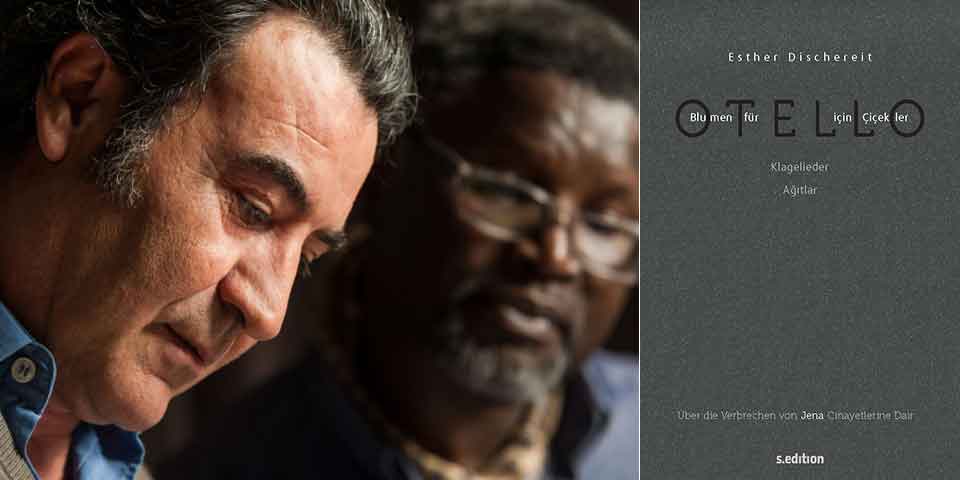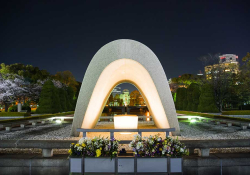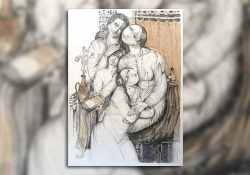Lamentations

Author’s note: Flowers for Otello: On the Crimes That Came out of Jena is about a series of racially motivated murders committed by the so-called National Socialist Underground (NSU) between 1998 and 2011. Of the ten victims, all were immigrants or foreigners with the exception of a German police officer. The NSU were also responsible for two bomb attacks, with numerous injured. This terrorist organization was known to the investigative and intelligence authorities but was not pursued. Instead, the victims and their families were themselves accused over several years of involvement in violent crime and other criminal acts.
"Lamentations” commemorates the dead. It is a literary manifesto of grief and complaint against those responsible. Politicians promised a full investigation; the trial of five persons accused of the crimes has not fulfilled that promise. The families of the victims assert their right to the truth.
I shop at this store
milk and the white bread
they call the wedding
Along with the change
there was sometimes a handful
of pistachios or invitation
to try their olives
freshly delivered and stuffed
with almonds
no almonds will be
stuffed in these olives again
the long white loaves
are stale
the milk is sour
there is no bread
called wedding
there was the bride
who had no father
to lead off her dance
the store is empty, burnt out
don’t ask why
don’t ask if it’s war
a crusade
without children
with flags
stuck in men’s belts
and their families shine
their shoes before they leave
bake cakes and collect
the stamps on the letters
nobody writes
in the back room
someone sat toying
with his signet ring
in which the faces
appeared
a soldier
another soldier
a police officer
and an officer of the underworld
and a founder of the Firm
and someone else
he was an airman
yet another
ran a brothel
had a Club
for heavy machines
between their legs
and another
who gave the judges
a whiff of the burning fuse
his uniform had red epaulettes
they dance around a midsummer fire
first they turn potatoes over
they hold photos to the blaze
the paper starts to smolder
they’re shooting
don’t you have a camera
I go back
to my store
prowl past closed blinds
wanting to give the dead man inside
some white bread
a glass of tea
the tea is cold and has stained the rim
of the glass the tea is cold and has stained
the rim of the glass
next morning I shall come, I say,
next morning, and give you
white bread again and a glassful of hot sweet
black tea.
Translation from the German
By Iain Galbraith
Editorial note: From “Lamentations,” in Flowers for Otello: On the Crimes That Came out of Jena, by Esther Dischereit (Berlin/Zürich: Verlag Secession, 2014).
“Ich kaufe ein in diesem Laden” (I shop at this store) aired on Deutschlandradio Kultur on September 3, 2013. Featuring words by Esther Dischereit, direction by Beatrix Ackers, voiced by Corinna Kirchhoff and Idil Üner, music by İpek İpekçoğlu.















